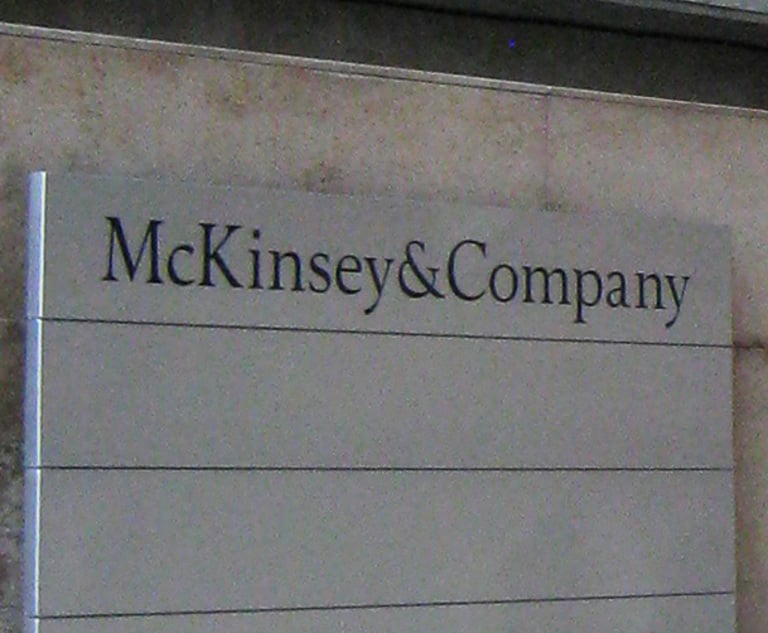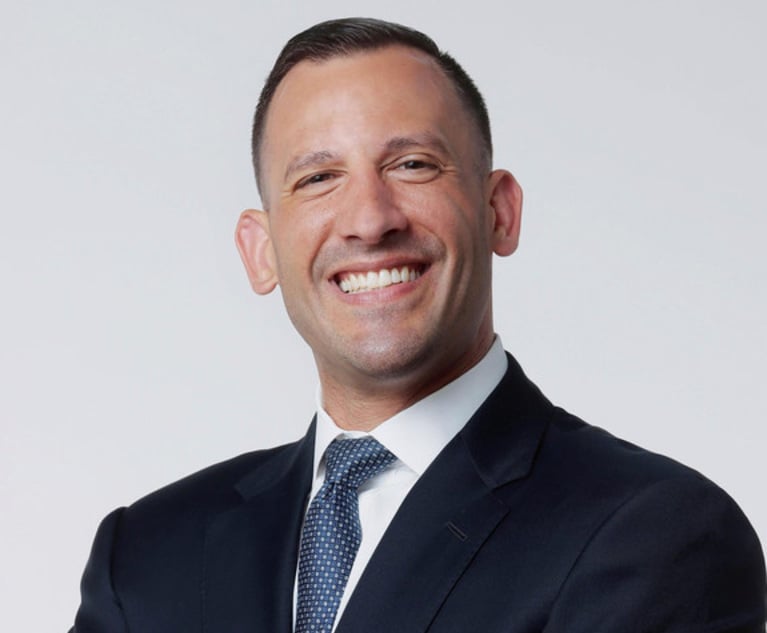FCPA Standstill
In his Corporate Crime column, Steven M. Witzel, joined by Arthur Kutoroff, write: Notwithstanding Trump administration antipathy to "zealous" anti-corruption enforcement, and perhaps assuaged by post-election expressions of support from administration officials and confidence in line prosecutors, commentators have near-unanimously predicted a steadfast continuation of this robust FCPA enforcement. The facts to date do not support these initial predictions.
September 06, 2017 at 02:05 PM
19 minute read
President Donald Trump was inaugurated at the height of an era of aggressive and record-breaking enforcement of the Foreign Corrupt Practices Act, a law Congress passed 40 years ago to combat international bribery and corruption.1 The Trump administration, however, has expressed concerns that U.S. regulators and companies are playing by a stricter set of rules on an unlevel playing field, especially in developing countries. Before he was President, Donald Trump condemned the FCPA as a “horrible law” that “should be changed” because it penalizes American businesses for “going over to China and Mexico and other countries and getting business”; Attorney General Jeff Sessions has expressed concern about “unfair competition” from non-U.S. companies that are not bound by the FCPA; and while in private practice, SEC Chairman Jay Clayton advocated for the United States to “reevaluate its approach” due to “significant costs” imposed on American business by the “unique” and “zealous” enforcement of the FCPA.
Notwithstanding Trump administration antipathy to “zealous” anti-corruption enforcement, and perhaps assuaged by post-election expressions of support from administration officials and confidence in line prosecutors, commentators have near-unanimously predicted a steadfast continuation of this robust FCPA enforcement.2 The facts to date do not support these initial predictions.
As of Sept. 1, 2017, the Trump administration had only brought three FCPA enforcement actions—a stark contrast with the 24 FCPA enforcement actions (eight DOJ; 16 SEC) that the Obama administration brought between Jan. 20 and Sept. 1, 2016.3 Although it is early in the Trump presidency, the transition between presidential administrations did not prevent President Trump's predecessors from hitting the ground running. By Sept. 1, 2009, the Obama administration had filed 25 FCPA enforcement proceedings, surpassing the 17 FCPA enforcement proceedings the Bush administration filed between Jan. 20 and Sept. 1, 2008.4
This content has been archived. It is available through our partners, LexisNexis® and Bloomberg Law.
To view this content, please continue to their sites.
Not a Lexis Subscriber?
Subscribe Now
Not a Bloomberg Law Subscriber?
Subscribe Now
NOT FOR REPRINT
© 2025 ALM Global, LLC, All Rights Reserved. Request academic re-use from www.copyright.com. All other uses, submit a request to [email protected]. For more information visit Asset & Logo Licensing.
You Might Like
View All
Enemy of the State: Foreign Sovereign Immunity and Criminal Prosecutions after ‘Halkbank’
10 minute read
McKinsey Subsidiary to Pay Nearly $123 Million to Settle US Investigation Into South Africa Bribery Case


FEPA: The Most Influential Anti-Bribery Legislation Since FCPA or a Paper Tiger?
8 minute readTrending Stories
- 1In Novel Oil and Gas Feud, 5th Circuit Gives Choice of Arbitration Venue
- 2Jury Seated in Glynn County Trial of Ex-Prosecutor Accused of Shielding Ahmaud Arbery's Killers
- 3Ex-Archegos CFO Gets 8-Year Prison Sentence for Fraud Scheme
- 4Judges Split Over Whether Indigent Prisoners Bringing Suit Must Each Pay Filing Fee
- 5Law Firms Report Wide Growth, Successful Billing Rate Increases and Less Merger Interest
Who Got The Work
J. Brugh Lower of Gibbons has entered an appearance for industrial equipment supplier Devco Corporation in a pending trademark infringement lawsuit. The suit, accusing the defendant of selling knock-off Graco products, was filed Dec. 18 in New Jersey District Court by Rivkin Radler on behalf of Graco Inc. and Graco Minnesota. The case, assigned to U.S. District Judge Zahid N. Quraishi, is 3:24-cv-11294, Graco Inc. et al v. Devco Corporation.
Who Got The Work
Rebecca Maller-Stein and Kent A. Yalowitz of Arnold & Porter Kaye Scholer have entered their appearances for Hanaco Venture Capital and its executives, Lior Prosor and David Frankel, in a pending securities lawsuit. The action, filed on Dec. 24 in New York Southern District Court by Zell, Aron & Co. on behalf of Goldeneye Advisors, accuses the defendants of negligently and fraudulently managing the plaintiff's $1 million investment. The case, assigned to U.S. District Judge Vernon S. Broderick, is 1:24-cv-09918, Goldeneye Advisors, LLC v. Hanaco Venture Capital, Ltd. et al.
Who Got The Work
Attorneys from A&O Shearman has stepped in as defense counsel for Toronto-Dominion Bank and other defendants in a pending securities class action. The suit, filed Dec. 11 in New York Southern District Court by Bleichmar Fonti & Auld, accuses the defendants of concealing the bank's 'pervasive' deficiencies in regards to its compliance with the Bank Secrecy Act and the quality of its anti-money laundering controls. The case, assigned to U.S. District Judge Arun Subramanian, is 1:24-cv-09445, Gonzalez v. The Toronto-Dominion Bank et al.
Who Got The Work
Crown Castle International, a Pennsylvania company providing shared communications infrastructure, has turned to Luke D. Wolf of Gordon Rees Scully Mansukhani to fend off a pending breach-of-contract lawsuit. The court action, filed Nov. 25 in Michigan Eastern District Court by Hooper Hathaway PC on behalf of The Town Residences LLC, accuses Crown Castle of failing to transfer approximately $30,000 in utility payments from T-Mobile in breach of a roof-top lease and assignment agreement. The case, assigned to U.S. District Judge Susan K. Declercq, is 2:24-cv-13131, The Town Residences LLC v. T-Mobile US, Inc. et al.
Who Got The Work
Wilfred P. Coronato and Daniel M. Schwartz of McCarter & English have stepped in as defense counsel to Electrolux Home Products Inc. in a pending product liability lawsuit. The court action, filed Nov. 26 in New York Eastern District Court by Poulos Lopiccolo PC and Nagel Rice LLP on behalf of David Stern, alleges that the defendant's refrigerators’ drawers and shelving repeatedly break and fall apart within months after purchase. The case, assigned to U.S. District Judge Joan M. Azrack, is 2:24-cv-08204, Stern v. Electrolux Home Products, Inc.
Featured Firms
Law Offices of Gary Martin Hays & Associates, P.C.
(470) 294-1674
Law Offices of Mark E. Salomone
(857) 444-6468
Smith & Hassler
(713) 739-1250






